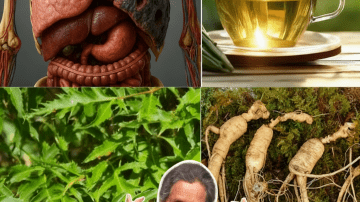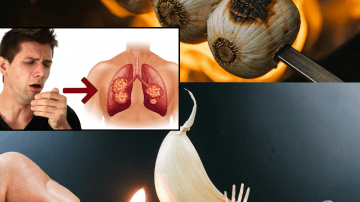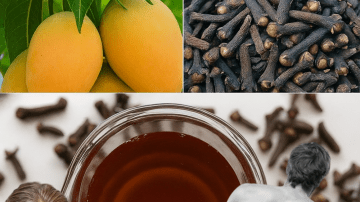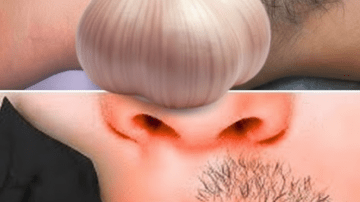Imagine stumbling upon a plant in the wild that whispers promises of ancient healing powers—easing asthma, banishing pain, and even lulling you into deep sleep. But what if that same bloom hides a venomous secret capable of plunging you into a terrifying 72-hour hallucination, or worse, stealing your life in a single mistaken dose? Datura stramonium, commonly known as jimsonweed, thorn apple, or devil’s trumpet, is that enigmatic temptress of the nightshade family. Its ethereal white flowers and thorny pods have captivated shamans, herbalists, and daredevils for centuries. Yet, beneath its mystical allure lies a biochemical arsenal of alkaloids—atropine, hyoscyamine, and scopolamine—that can cure in whispers or kill in screams. Are you brave enough to uncover its dual nature? Dive in, because this isn’t just a plant; it’s a high-stakes gamble with your health.

🌿 Unveiling the Enigma: What Exactly Is Datura Stramonium?
Picture this: a rugged weed thriving on forgotten roadsides, barren fields, and urban wastelands from the sun-baked plains of Africa to the misty hills of Asia and the vast expanses of North America. Datura stramonium belongs to the infamous Solanaceae family, kin to belladonna’s deadly gaze and tobacco’s addictive pull. Its history is a tapestry of reverence and dread.
In the 19th century, desperate asthma sufferers inhaled its smoked leaves for instant airway relief. Ancient Ayurvedic texts and Native American rituals harnessed it for pain alleviation and spiritual journeys. But in medieval Europe, it earned a fearsome reputation for inducing madness and death through accidental ingestion or malicious intent. This plant doesn’t just grow—it commands attention, blending folklore with pharmacology in a way that demands respect. Understanding its roots isn’t optional; it’s the key to deciding if it’s a forgotten ally or a modern menace.
💨 Benefit 1: A Breath of Relief for Asthma Sufferers
Struggling to catch your breath during an asthma flare-up? Datura’s dried leaves were once a go-to remedy, smoked like a primitive inhaler to dilate bronchial passages. The star player here is scopolamine, which relaxes smooth muscles in the airways, providing rapid bronchodilation. Historical accounts from the 1800s paint vivid pictures of patients finding solace in its fumes when modern medicine was a distant dream.
Today, while we have precision inhalers, the plant’s mechanism mirrors pharmaceutical anticholinergics. It’s a reminder of nature’s ingenuity—but one that comes with a stark warning: self-experimentation can turn relief into respiratory chaos. Opt for doctor-prescribed alternatives to breathe easy without the peril.
🛡️ Benefit 2: Potent Pain Relief and Muscle Soother
Chronic pain gnawing at your joints or cramps twisting your muscles? Datura’s hyoscyamine delivers antispasmodic and analgesic punches, calming spasms and dulling discomfort. From menstrual agony to arthritis flares, traditional users swore by its topical applications or micro-dosed infusions.
Imagine rubbing a diluted extract on sore limbs and feeling tension melt away. This isn’t fantasy; the alkaloids interfere with nerve signals, offering a natural opioid-like effect without the addiction risk of synthetics. Yet, the margin for error is razor-thin—too much, and pain gives way to paralysis. Safer paths include arnica gels or turmeric capsules, proven warriors in the fight against inflammation.
🦠 Benefit 3: Battling Bacteria with Nature’s Antibiotic
In a world increasingly resistant to antibiotics, Datura steps up with antimicrobial prowess. Leaf extracts have demonstrated knockout power against stubborn pathogens like Staphylococcus aureus and Pseudomonas aeruginosa, responsible for skin infections and wound complications.
Traditional healers applied poultices to festering boils, watching infections retreat. The plant’s compounds disrupt bacterial cell walls, halting growth in its tracks. This benefit shines in remote areas lacking pharmacies, but for everyday use, embrace tea tree oil or honey-based dressings—effective shields without the toxic backlash.

🌸 Benefit 4: Skin Savior for Wounds and Irritations
Got a stubborn ulcer, boil, or itchy rash? In Indian folk medicine, Datura juice blended with sesame oil formed a healing elixir for skin woes, even soothing earaches. Its anti-inflammatory alkaloids reduce swelling, while antimicrobials accelerate tissue repair.
Visualize applying a careful concoction to a cut and seeing it knit faster than expected. The plant’s versatility extends to eczema or psoriasis flare-ups, calming irritated dermis. However, absorption through skin can lead to systemic effects, so why risk it? Turn to aloe vera’s gentle hydration or calendula’s proven soothing for flawless, safe results.
😴 Benefit 5: Sedative Secrets for Restless Nights
Tossing and turning, chasing elusive sleep? Scopolamine’s sedative influence quiets the mind, shortening the time to slumber in controlled studies on animals. It modulates neurotransmitters, inducing a tranquil state akin to prescription sleep aids.
Herbalists of old used it for insomnia tied to anxiety or pain. Picture drifting off naturally, without groggy mornings. But overdose flips this to nightmares—literal ones. Stick with chamomile tea or valerian root for peaceful nights that don’t end in emergency rooms.
⚠️ The Shadow Side: Risks That Can Shatter Lives
For every glimmer of hope, Datura casts a long, dark shadow. Its alkaloids block acetylcholine, unleashing anticholinergic syndrome: a cascade of horrors starting with dry mouth and blurred vision, escalating to fever, tachycardia, seizures, and coma. Hallucinations aren’t euphoric—they’re a disorienting delirium, often described as a relentless psychological torment lasting days.
Animal research reveals organ assault: brain fog, liver toxicity, spleen damage from excess exposure. Potency fluctuates wildly—seeds pack the deadliest punch, varying by harvest time, soil, and climate. A handful can kill; children and pets are prime victims of accidental poisoning. One family in India mistook seeds for cumin, triggering mass hallucinations and near-fatal heart rates—only swift medical intervention saved them.
🚫 Who Must Steer Clear at All Costs?
This plant isn’t for everyone—far from it. Pregnant or nursing mothers risk fetal harm. Children and teens face amplified toxicity due to smaller bodies. Heart patients, glaucoma sufferers, or those with mental health issues could spiral into catastrophe. If you fit these categories, admiration from afar is your only safe option.
🛑 Golden Rules for the Foolhardy Few
Curiosity piqued? Proceed with extreme caution—or better yet, don’t. Never self-medicate; confine use to supervised clinical trials. Ingestion via teas, seeds, or powders is suicidal roulette. Even handling demands gloves to prevent dermal absorption. Lock it away from vulnerable hands and paws. Recognize overdose red flags: pupil dilation like saucers, confusion, pounding pulse—rush to ER without delay.
🌱 Smarter Swaps: Harness Benefits Without the Bite
Craving Datura’s perks? Nature offers kinder cousins. For asthma: licorice root brews or prescribed puffers. Pain: ginger infusions or capsaicin creams. Infections: manuka honey applications. Skin healing: neem lotions. Sleep: lavender pillows or melatonin supplements. These deliver results with safety nets intact.
❓ Burning Questions Answered
Is Datura stramonium truly safe? Only in labs under expert eyes—never DIY. How does it ravage the brain? By starving acetylcholine receptors, sparking chaos in cognition and perception. Fatal potential? Absolutely; mere seeds have claimed lives. Legality? Growing is often fine, but consumption bans exist in savvy regions.

🔚 The Verdict: Beauty, Power, and Peril Entwined
Datura stramonium embodies nature’s paradox—a floral phoenix that can heal or incinerate. Its benefits, rooted in centuries of tradition and emerging science, tantalize the imagination. Yet, the abyss of risks yawns wide: unpredictable, unforgiving, often irreversible. In an era of accessible, regulated medicine, why dance with the devil’s trumpet? Honor its legacy by choosing wiser paths. Explore safer herbs, consult professionals, and let this wild wonder remain a cautionary tale. Your body—and sanity—will thank you. What hidden plant powers will you uncover next, safely?






